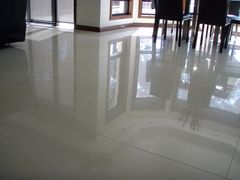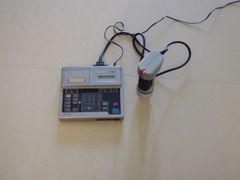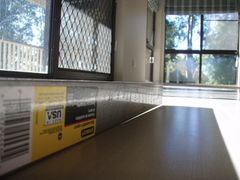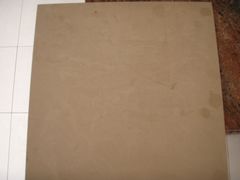Porcelain Tile Defects & Common Problems
Porcelain tiles have a sense of unparallel quality, however more commonly there are unsatisfied consumers generally due to a combination of poor tile quality, perceived surface defects and somtimes unreaslistic expectations. The most commonly encountered surface defects on polished porcelain tiles include:
- Optical hazing
- Grinding marks
- Perceived lippage
- Dimensional tolerances
- Shade or colour variation
- Staining and cleaning efficacy
- Slip Resistance or slippery tiles
Surface Defects of Porcelain Tiles
There are deficiencies between consumer’s expectations for high quality polished porcelain tiles and the current Australian and International Standards. The Australian Standard to determine the surface quality of polished porcelain tiles part of the AS 4459 series. AS 4459.2 Determination of Dimensions and Surface Quality outlines the method for assessing the surface quality of polished porcelain tiles.
Lippage of Porcelain Tiles
The lippage of polished porcelain tiles may not be the tiles fault, or the tiler who installed them, it may be a combination of a few elements. When assessing the degree of lippage inherent within a tiling installation the following factors must be considered:
- Surface flatness of the substrate
- Curvature or warpage of the tiles
- Pattern in which the tiles are installed
- Workmanship
Many people are unaware that polished porcelain tiles can curve as much as 0.5% the length of the tile. For instance if you have a 600 x 600 mm polished porcelain tile, the surface can warp up to 3 mm by the Australian and International Standards. In these cases it may be impossible to reduce the amount of lippage of polished porcelain tiles to less than 1 mm as required by AS 3958.1-2007, Ceramic tiles, Part 1: Guide to the installation of ceramic tiles. These factors need to be considered when assessing the unsatosfactory tiling appearance
Shade Variation of Porcelain Tiles
Commonly shade variation can form a complaint of polished porcelain tiles being defective. Unglazed tiles have greater inherent shade variation due to the natural raw materials which are sourced throughout the world. Differen boxes and batches can potentially have slight shade variations. AS 4459.16 Determination of small colour difference, outlines a method to determine the colour variation. In many instances this can also occur due to reverse water staining or marking.
This is common when the glaze of a ceramic tile is defective and fails to mask the change in colour when water is absorbed into the biscuit. The colour of the different tiles can be measured using a colour meter and refeered back to the agreed industry tolerance. In many instances, while the colour can be perceived, it may still pass the colour difference test. Only colour testing can confirm if it meets the Australian Standard or not.
Staining of Porcelain Tiles
Many people are unaware that polished porcelain tiles are unglazed, and there are nminimal staining requirements for unglazed ceramic tiles. Safe Environments recommend that before purchasing polished porcelain tiles that you conduct your own stain testing using common household items and a range of sealers. Remember that sealers will increase the stain resistance of polished porcelain tiles, not make them stain proof and will generally require re application on a regular basis. Safe Environments can assist by providing stain resistance testing to assist if the polished porcelain tile you are considering has a propensity to stain.
Slip Resistance of Porcelain Tiles
The slip resistance of ceramic tiles can vary considerably is dependent on the type of finish and glaze. Modern processing techniques can engineer ceramic tiles to be very slip resistant however; In general terms, the slip resistance of polished porcelain tiles is very slippery in wet conditions. Some aftermarket antislip or non slip treatments may assist to increase the slip resistance, however independent testing and regular onsite auditing is required to ensure that the risk of a slip and fall accident is reduced.
In summary, polished porcelain tiles can enhance the aesthetics of your floor; however care must be taken that the consumer is aware of the limitations of the product.





